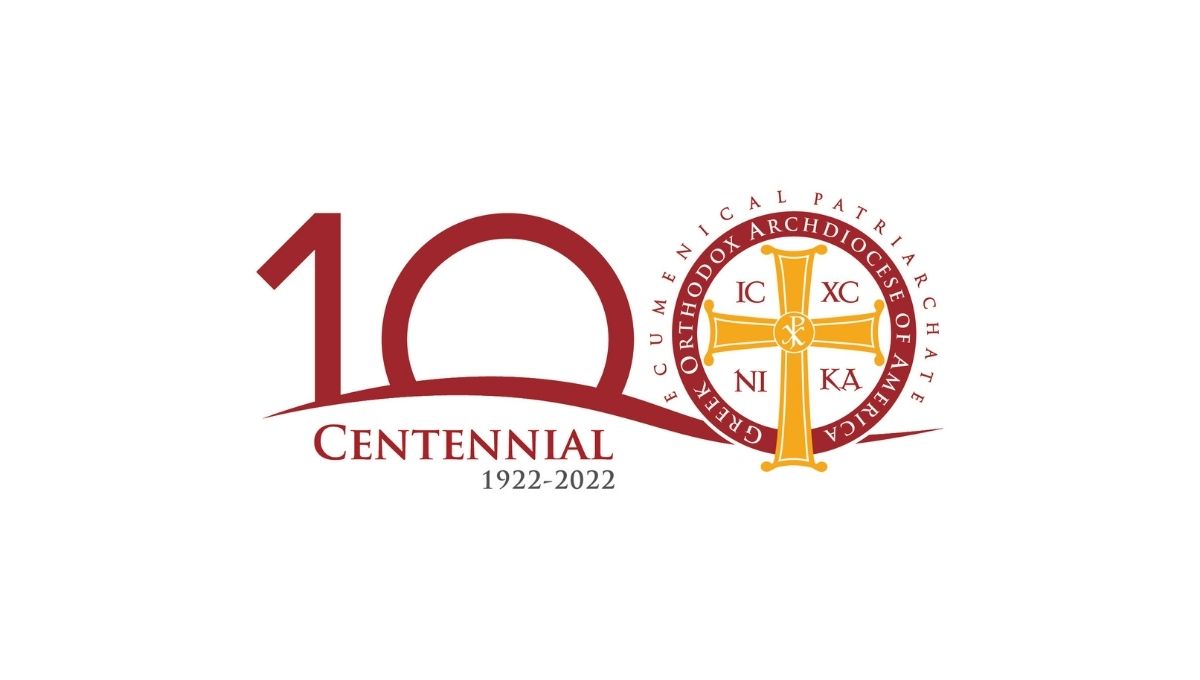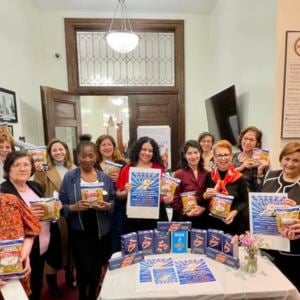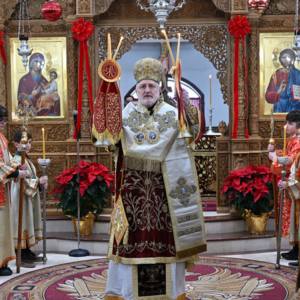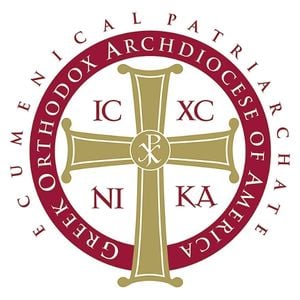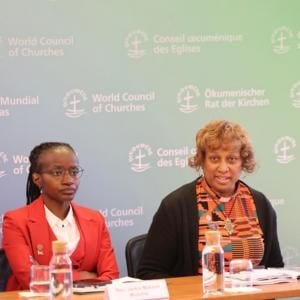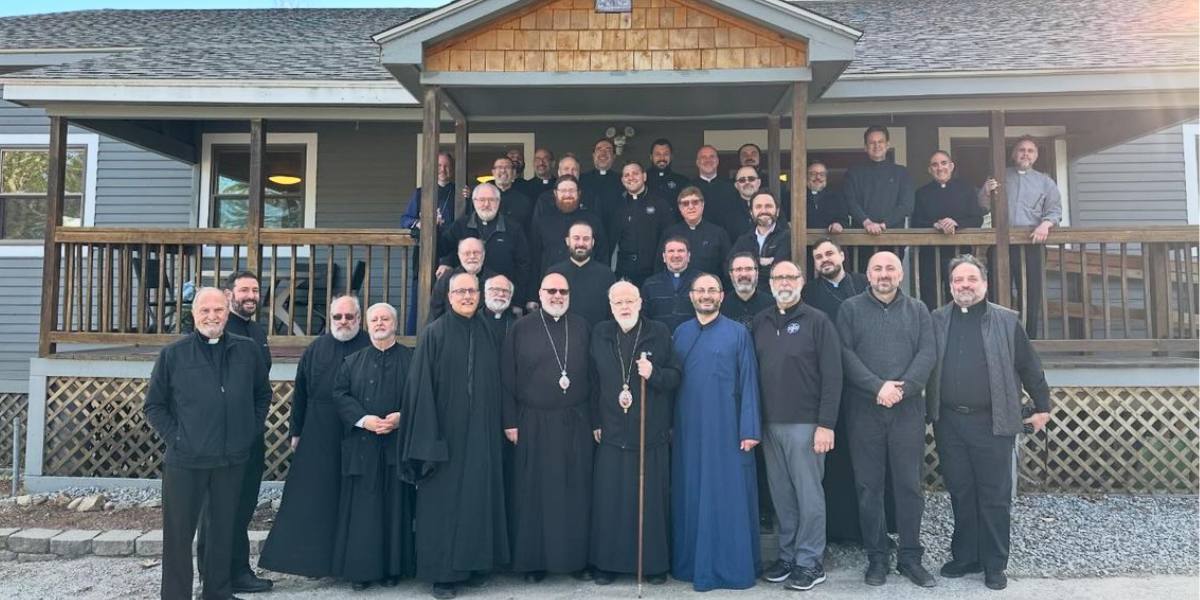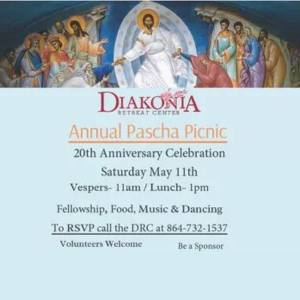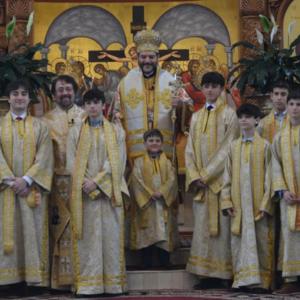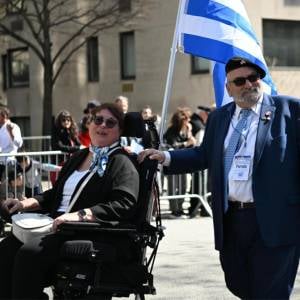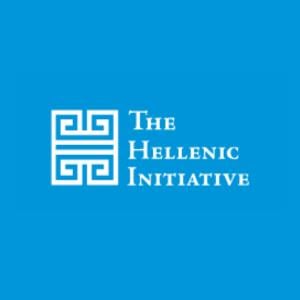His Eminence Archbishop Elpidophoros
Homily at Divine Liturgy for Ss. Constantine & Helen
May 19, 2022
Hellenic College Holy Cross
Brookline, Massachusetts
Beloved in the Risen Lord,
Χριστὸς Ἀνέστη! Christ is Risen! Χριστὸς Ἀνέστη!
In this week of celebration over the first Commencement here at our School in three years, we find ourselves in a unique week in the life of the Church – that of Mid-Pentecost. This halfway point between the Rising of the Lord and the Descent of the Holy Spirit reminds us powerfully of the reality of both Pascha and Pentecost, for we experience them both in every Divine Liturgy. The Koinonikon for Mid-Pentecost is the astonishing, if graphic, saying of our Lord Jesus Christ, as He taught after the Feeding of the Five Thousand:
Ὁ τρώγων μου τὴν Σάρκα, καὶ πίνων μου τὸ Αἷμα, ἐν ἐμοὶ μένει, κἀγὼ ἐν αὐτῷ, εἶπεν ὁ Κύριος.
Those who eat My flesh and drink My blood abide in Me and I in them, said the Lord.1
This amazing saying, within an equally amazing discourse recorded in the Gospel of John, reveals a central truth of our spiritual life:
We only find our life in God, as we nourish ourselves on Him.
This seems so simple. So utterly transparent. But when the Lord Jesus spoke in this way to the multitudes He had miraculously fed with the two fishes and five loaves, even His Disciples could barely accept it:
As a result of this teaching, many of His disciples turned back and no longer followed Him. 2
Perhaps it was because the teaching smacked of cannibalism. We certainly know this charge was thrown against Christians from the earliest times, and even today the Eucharist is ridiculed by some who misunderstand its meaning.
Or perhaps because it suggests an intimacy with God that is beyond human imagination.
So why does this Koinonikon arise at Mid-Pentecost, to remind us so explicitly of what our communion with God really entails?
Because, my dear Christians,
Because we are always midway, in every moment of our lives.
Between life and death.
Between holiness and sinfulness.
Between the First Coming of the Lord in His creation of the cosmos, and the Second and Glorious Coming in His restoration and redemption of all things.
The promise lingers between Pascha and Pentecost.
And therefore here, … τῆς ἑορτῆς μεσούσης as the Gospel says, we always find ourselves.3 It is a universal trope. Recall the first line of the Divine Comedy by the great Dante:
“In the middle of the journey of our life…”4
How long could we last on any journey without provisions? Food and water are so basic to human existence. How much less can we be true to our divine calling and the purpose of being human without the nourishment of God. He offers Himself at all times for the life of the world. And we need only feed on Him, receive Him into our deepest being, absorb Him and allow Him to suffuse every aspect of our minds, hearts, bodies and souls.
It is a radical way of living, to be sure. It means that what we do in the Divine Work of the Divine Liturgy is more than any understanding of our ritual actions and words. It is the direct encounter with the Living God, the God Who conquered death by His Arising, and Who is always with us through the Divine and All-Holy Spirit. Breathing with us, breathing in us.
Thus, we are forever in Mid-Pentecost, always in process, and always growing in grace and in the knowledge and love of God.5
May we ever be so blessed as to receive the nourishment He deigns to grant us – His Holy Body and Precious Blood, so that we may forever have strength for the journey.
Χριστὸς Ἀνέστη!

